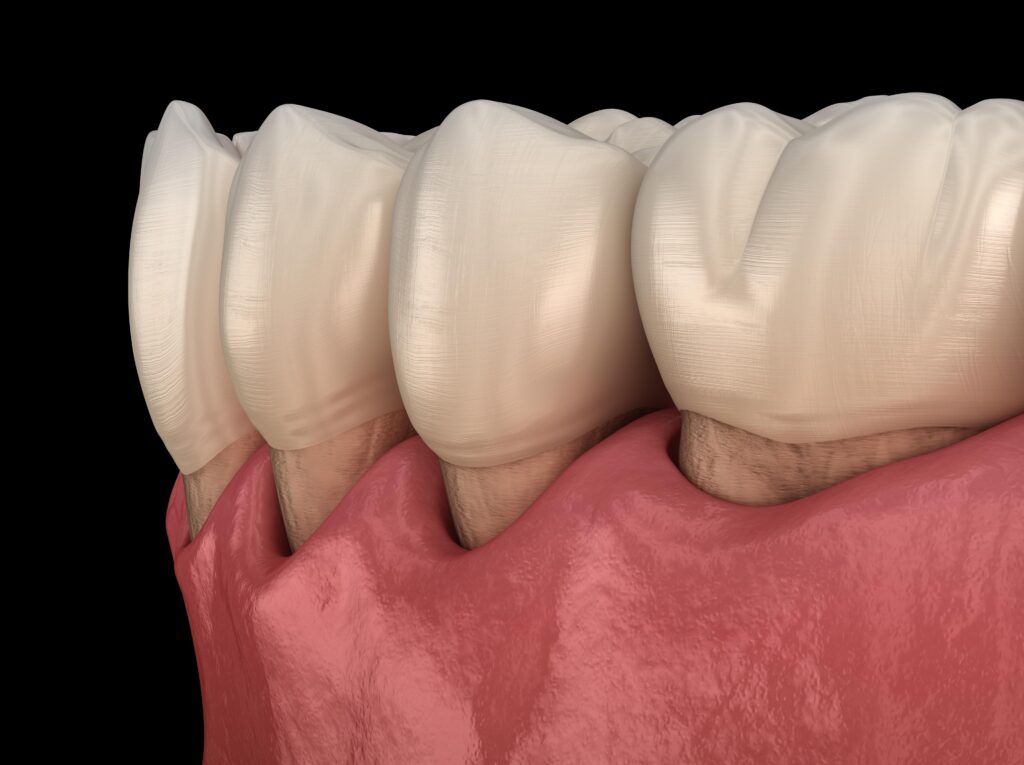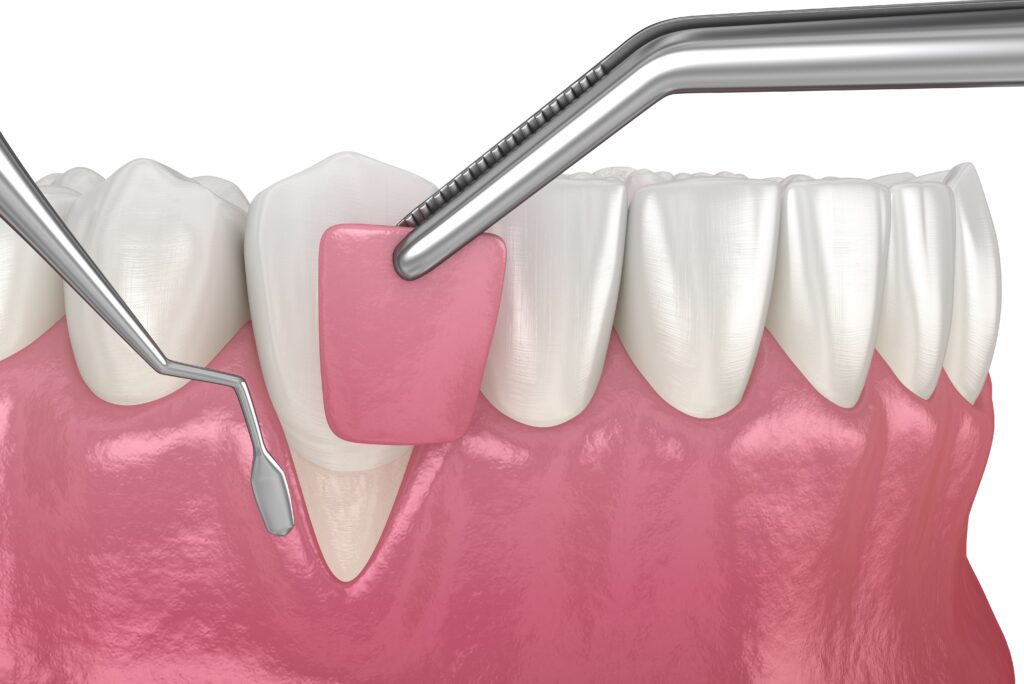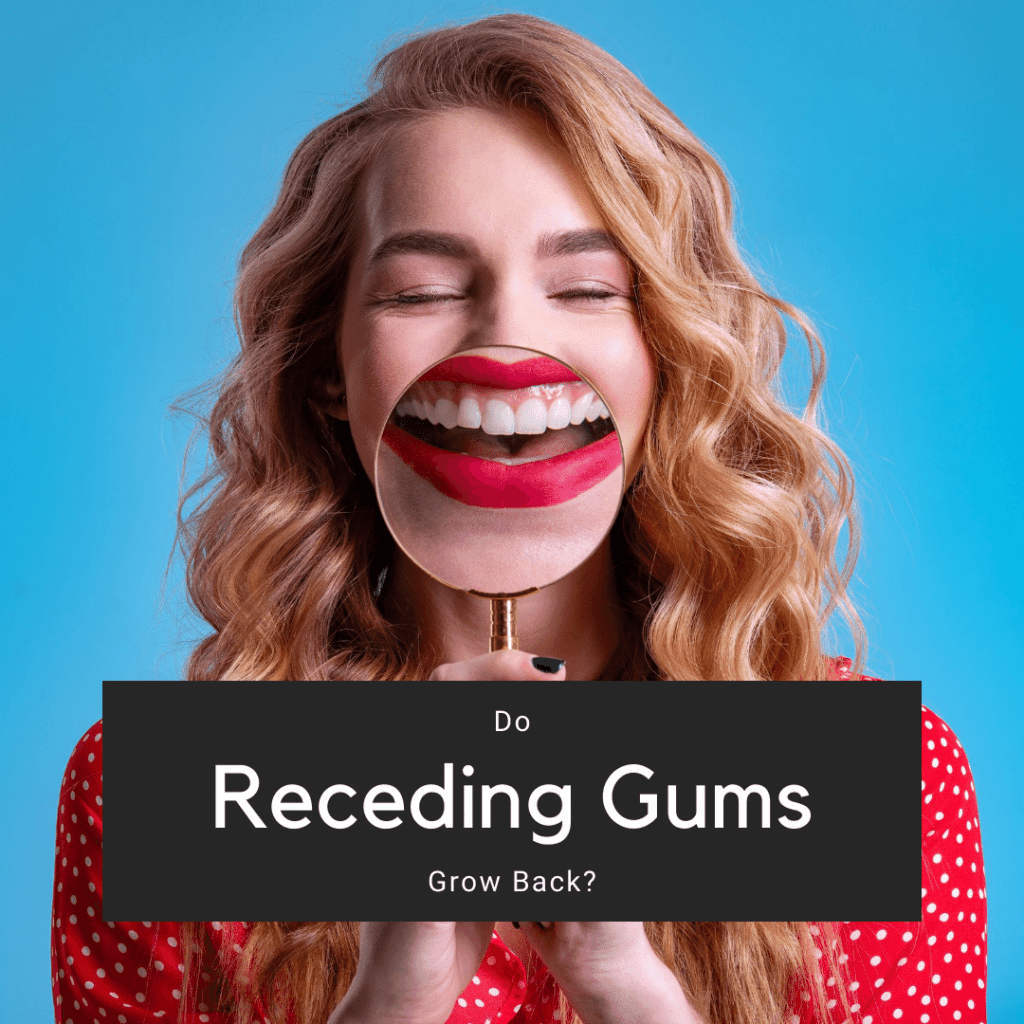Receding gums are a common problem that can lead to other dental problems. But, how do you know if you have receding gums and is it something you should worry about? Also, do receding gums grow back? Unfortunately, the simple answer is that, no, receding gums do not grow back. This blog post will discuss what causes receding gums and how to treat them since they don’t grow back.
What is Gum Recession?
Gum recession occurs when the tissues that attach your teeth to your bone slowly pull away from the surface of your teeth. As these tissues pull away from the teeth, they expose more of your tooth’s root surface. Exposed tooth roots eventually leads to tooth sensitivity and increases the risk of root cavities since tooth roots have a very thin layer of enamel.

Additionally, receding gums cause spaces between the teeth and gums to form, known as periodontal pockets. Unfortunately, these pockets become a common location for excess plaque and bacteria to accumulate, which leads to more gum recession.
The most common cause of gum recession is gum disease. Gum disease is a bacterial infection that affects the gums and supporting tissues around teeth. When left untreated, gum disease causes the gums to become inflamed and pull away from the teeth. Other causes of gum recession can include:
-
- Brushing your teeth too hard or using a toothbrush with bristles that are too stiff
-
- Genetic factors (gum recession can run in some families)
-
- Tooth grinding and clenching
-
- Gum trauma or injury
Treatments for Gum Recession
Unlike other tissues in the body, gum tissue cannot regenerate. This essentially means that once the gums have receded, they will not grow back. Therefore, treatments for gum recession are usually directed at restoring gum tissue and/or preventing gum recession from getting worse. Some common treatments can include:
Prevention
One of the best ways to treat gum recession is to take preventative measures to prevent it or at least minimize its severity. For starters, a good way to prevent gum recession is to maintain good oral hygiene habits. This includes brushing your teeth at least twice a day with a soft-bristled toothbrush, flossing daily, and using a mouth rinse. This decreases the risk of gum disease, which decreases the risk of gum recession.

Scaling and Root Planing
If you are already experiencing symptoms of gum recession, such as tooth sensitivity or open spaces between teeth and gums, then your dentist may recommend a deep cleaning known as scaling and root planing. This is a two-step procedure in which the dentist first removes the plaque and calculus (tartar) from your teeth and then smooths the roots of your teeth to discourage further plaque accumulation.
Gum Grafts
For severe cases of gum recession, a gum graft may be needed. During a gum graft, your dentist will remove a piece of healthy tissue from elsewhere in the mouth and use it to patch up the affected area. Gum grafts help to cover exposed tooth roots, and they prevent bone loss and further gum recession.
In Conclusion
Gum recession can be a tricky problem to fix because your gums cannot simply grow back. The best way to stop or prevent gum recession is by maintaining good oral hygiene habits that keep plaque and bacteria away from your teeth. For those who are already experiencing symptoms of gum recession, there are several steps you can take with treatment plans ranging from specialized cleanings to surgery for severe cases. Your dentist will help you decide which procedure is right for you so feel free to schedule an appointment if this article has made you curious about what could be causing your receding gums!

Dr. Admar holds dual certificates — a Bachelor of Dental Surgery (BDS) in 2010 from India and a Doctor of Dental Surgery (DDS) in 2014 from Canada. He is now a full time practicing dentist in Kamloops where he provides a variety of services, including emergency dentistry. Dr. Admar spends hundreds of hours in continued dental education to stay up to date in cosmetic and implant dentistry and he has achieved several advanced qualifications.


